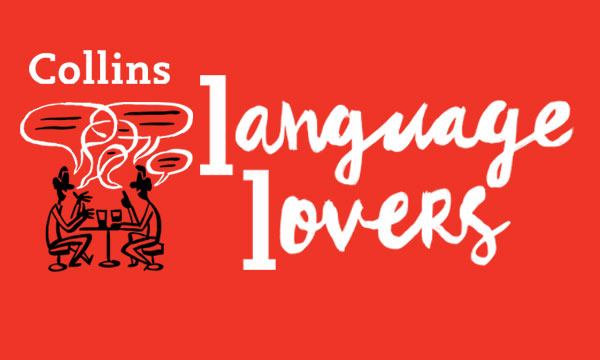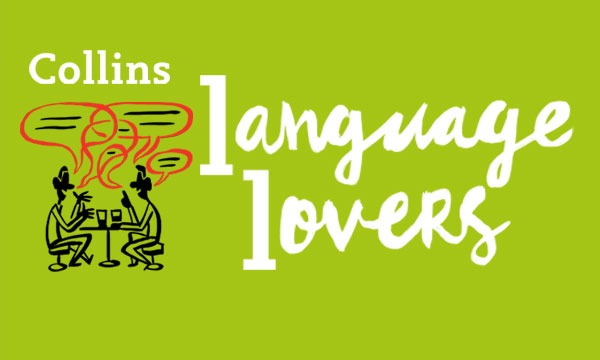Alright? Don’t worry, you’re not actually expected to respond to that question. Just like any other language, English has many quirks and a whole range of idioms that can cause confusion when you’re learning the language.
But when it comes to British English even native speakers can find themselves scratching their heads. The regional variety of English across England, Wales, Scotland and Northern Ireland has led to many colloquialisms, particularly because the English spoken today has roots in many languages including Latin, Old Norse, and Gaelic.
With bants recently entering Collins English Dictionary online, we decided it was time to round up some of our favourite weird and wonderful British slang. And believe us, there’s more to it than just Cockney rhyming slang.
Ace
Example sentence: ‘Sounds ace, count me in.’
If you like card games, tennis, or are a fan of 80s heavy metal bands, you’re probably familiar with an ace. But in British slang, ace is used as a predicative adjective to describe something you think is excellent. That could be a person, a song, a social gathering or event, literally anything you like a lot.
Bagsy
Example sentence: ‘Bagsy the front seat!’
Bagsy is described as British and Australian children’s slang, but all of us are secretly big kids so it’s definitely used by adults too. Bagsy rules are the same as shotgun. If you shout bagsy before somebody else, that means you’ve claimed the right to something. It can also get you out of something, for example, ‘bagsy not taking out the bins!’. Bagsy is the law, once you’ve bagsied it, it’s yours. We don’t make the rules.
Bants
Example sentence: ‘For the bants.’
A new kid on the block at Collins Dictionary! The British are big fans of a bit of banter, which is defined as friendly teasing or joking. Bants is the abbreviated version of the word, which can also be spelt with a z. While it can look like you’re insulting each other, it’s typically a sign of affection. While bants is a 21st-century coinage, banter goes back as far as the late 17thcentury. It’s a British tradition.
Blimey
Example sentence: ‘Blimey, I didn’t see that coming.’
Cor blimey! Love it or hate it, blimey is a great British exclamation that we simply cannot get away from. Blimey is used to express surprise or emphasise something you feel strongly about. One of the most interesting things about blimey is its origin. It first appeared in the 19thcentury as gorblimey, which was a shortened version of the expression ‘God blind me’.
Bonkers
Example sentence: ‘That’s absolutely bonkers.’
From British slang to a global phenomenon thanks to English rapper Dizzee Rascal, bonkers can mean two things. The first, if you describe something as bonkers, you mean it’s silly. The second, if you’re using it to describe a person, you are saying they act in a crazy way.
Chuffed
Example sentence: ‘I’m well chuffed about that!’
If somebody tells you they’re chuffed, it means that they’re happy or pleased about something. It’s almost always paired with an intensifier, as in well chuffed or dead chuffed. This word also has a colourful origin in the word chuff, which dates back to the 1800s and was originally used to describe something as puffed up with fat.
Chunter
Example sentence: ‘Sheila was chuntering to herself.’
Not to be confused with chunder, chunter is a synonym for the word mutter. Chuntering involves grumbling or muttering incessantly in a meaningless way. Other fun ways of referring to this kind of meaningless babble include channer and mussitate. Both are now obsolete, but perhaps they’re due a revival?
Cuppa
Example sentence: ‘Fancy a cuppa?’
Rumour has it that if you fail to offer your British colleagues a cuppa at least once, you’ll be permanently exiled from the UK (fake news). A cuppa is a slang word for a good old cup of tea and it dates back to the early 1900s. While it is an abbreviated way of saying ‘cup of’ so it could in theory describe any hot beverage, it’s safe to assume you’re only ever being offered tea.
Gutted
Example sentence: ‘I’m absolutely gutted for you mate.’
Thankfully, not as gruesome as it sounds, although if you’ve ever Googled medieval punishments such as being hung, drawn and quartered, you would be forgiven for thinking the worst. Gutted is slang for being extremely upset, devastated or disappointed about something. To be fair, just saying the word out loud is enough to make you feel hollow.
Jammy
Example sentence: ‘You jammy git.’
The Brits do love a bit of jam. Jammy Dodger biscuits, rice pudding and jam, tiny jam sandwiches. If you’re described as jammy, it means you’re extremely lucky, though you may not deserve that luck. It has parallels in the phrase ‘to have jam on it’, which means to have something easy, and the expressions real jam or pure jam, used to describe something easy or pleasant.
Knackered
Example sentence: ‘Not tonight, I’m knackered.’
Have you ever been so exhausted you can feel it in your bones? The Brits have a word for that. If you’re knackered, it means you’re extremely worn out. First recorded in the late 19thcentury, it’s thought to come from the word knacker, meaning to tire. Before that, knacker was used as a verb for to kill, and worn-out horses would be brought into the knacker’s yard to be killed for their meat, hooves, and hides. In Cockney rhyming slang, you can also say you’re cream crackered.
Quid
Example sentence: ‘Have you got a quid?’
There are many different slang words for currency in British English. Quid, fiver, tenner. Quid is used in a similar way to how Americans call a dollar a buck. A quid is slang for a pound, a fiver for a five-pound note, and a tenner for a ten-pound note. If you were to describe someone as ‘quids in’, you’d be saying they were in a favourable or advantageous position, usually in a financial sense.
Got a favourite British slang word you just have to share? Tweet us @CollinsDict!
By Rachel Quin
Rachel Quin is a freelance marketer and copywriter with a love of language, books and cats.
All opinions expressed on this blog are those of the individual writers, and do not necessarily reflect the opinions or policies of Collins, or its parent company, HarperCollins.



